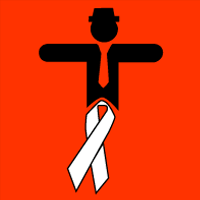Men Get Involved to Combat Domestic
Violence

►
Mobilising Male Parliamentarians
►
Declaration "Men Get Involved against domestic violence"
Standing Committee, 25 November 2007 (PDF)
►
How can parliamentarians take part in activities for the 25
November 2007 Day and encourage men to get involved in combating violence
against women?
►
Join the PACE pan-European initiative and send back the form!
►
Gender equality – are men interested? Can male
parliamentarians get involved? - an NGO perspective
►
Setting up Male Parliamentarian Networks : the Swedish
experience
►
Useful website links
(last update 11.12.2007)
Mobilising Male
Parliamentarians
There has been a growing
recognition that the role of men is crucial in changing unequal power relations.
Men throughout all spheres of society need to become more involved in combating
violence against women.
In the last decade, the
importance of ‘involving men’ in achieving gender equality has been highlighted
within the United Nations System. The
Beijing Declaration and Platform for Action, 1995, and Beijing +5,
the outcome of the twenty-third special session of the General Assembly, 2000,
both call for countries to promote men's support in the struggle for gender
equality and to call for a strategic movement to end gender-based violence.
Rapporteur of the Mid-term Assessment of the Campaign, Mr Mendes Bota,
emphasised during the recent part-session on 5 October, 2007, in Strasbourg, the need to focus on involving men, from a male parliamentarian
perspective, to combat violence against women.
 “Lastly a word on the need for male parliamentarians to be constantly involved
in the fight to combat violence against women. [Men] make up 80% of the members
of national parliaments in Europe and hold most of the positions of power in the
political, economic and social spheres. And 90% of those who engage in domestic
violence are men. The commitment of male public figures with parliamentary
responsibilities in this combat should become a factor for changing mentalities
in our society. This is why we are suggesting setting up a network of groups of
male parliamentarians in each parliament, following the example of the group in
place in Sweden since 2002.
“Lastly a word on the need for male parliamentarians to be constantly involved
in the fight to combat violence against women. [Men] make up 80% of the members
of national parliaments in Europe and hold most of the positions of power in the
political, economic and social spheres. And 90% of those who engage in domestic
violence are men. The commitment of male public figures with parliamentary
responsibilities in this combat should become a factor for changing mentalities
in our society. This is why we are suggesting setting up a network of groups of
male parliamentarians in each parliament, following the example of the group in
place in Sweden since 2002.
I am convinced
that if we carry out our parliamentary duty effectively, we will save the lives
of thousands of women and alleviate the physical and psychological suffering of
tens of millions of others. This is a great challenge that we are facing, but
the responsibility we have is even greater.
It is time to say enough is
enough!”
Excerpt of Mr Mendes Bota’s address to the Parliamentary Assembly, Strasbourg, 5
October 2007
How can parliamentarians
take part in activities for the 25 November 2007 Day and encourage men to get
involved in combating violence against women ?
Activities
targeting the parliamentarians
-
A media-oriented public
action in which politicians wear white ribbons and pledge personal and
political commitment to the campaign;
-
Organising hearings or
parliamentary seminars on the subject, including with NGOs
-
Setting up a network of
male parliamentarians dedicated to the issue and ready to press for
strengthening of law, judiciary, police training and provision for victims;
-
Organising “working
breakfasts” to discuss these issues in an informal context
-
Inviting MPs from abroad
to share their experience on involving men in combating violence against
women.
-
Organising a minute of
silence on 25 November
-
Signature of a Manifesto
or a declaration by male parliamentarians
Activities
targeting the general public
-
Radio advertisements;
-
Appearances on TV;
-
Linking the notion of
‘involving men’ in combating violence against women with campaigns to raise
awareness about HIV/AIDS;
-
Asking well-known men
such as actors, musicians, writers, sports figures, to support the campaign
by taking part in media campaigns;
-
Responding to current
affairs related to violence against women;
-
Partnering with NGOs to
help promote their work (a list of regional and country-wide NGOs related to
this issue can be provided with contact details; if requested);
-
Going into schools and
discussing the campaign;
-
Organising a poster
campaign in public transport areas;
-
Events in the workplace,
such as the setting up of a stand where men can sign up to pledge never to
commit violence against women;
-
A march led by men,
promoting male involvement in combating violence against women (start at a
parliament and end at a public place).
Gender equality – are men interested? Can male parliamentarians get involved?
"Parliamentarians enter parliament in order to make their community a better
place.
There is no more important way to do this than by working to eliminate violence
against women. The social, health psychological, and economic benefits are
staggering.
The cost of violence against women in just one member state of the Council of
Europe has been estimated by Professor Sylvia Walby to be approximately 40
billion Euros.
Yet because of the overrepresentation of men in every Parliament in Europe, it
is vital for individual male parliamentarians to be involved in order for change
to take place.
It is apparent by the statements made by the PACE and by parliaments across
Europe about the issue of violence against women that parliamentarians care
about the issue. Let us therefore demonstrate that care by becoming involved in
campaigning around the issue by supporting the initiatives laid out below."
"The Active Role of Men in Changing Attitudes to Combat Violence against Women", Chris Green's presentation at the Council of Europe Seminar on Men’s Active Participation in Combating Domestic Violence (Zagreb, 9-10 May 2007)
Setting up Male Parliamentarian
Networks : the Swedish experience
How to involve more actively male parliamentarians in combating violence
against women and, more generally, in gender equality issues? Following the
success and positive example of the
Swedish Network the Parliamentary Assembly
proposed in Resolution 1582 (2007) on “Parliaments united in combating
domestic violence against women”: mid-term assessment of the campaign
(Rapporteur : Mr José Mendes Bota (Portugal, EPP/CD) that national parliaments
:
“promote the setting up of a group of male parliamentarians dedicated to
combating violence against women and to create networks between them at
European level.”
Background information about the Swedish Parliamentarian Network
During a hearing on men’s involvement in equality projects in Reykjavik (Iceland,
13 September 2005) organised by the PACE Committee on Equal Opportunities for
Women and Men, Mr Lars U Granberg, Swedish MP, discussed his experiences
regarding the setting up of a Swedish Male Parliamentarian Network. Mr
Granberg said that he had taken the initiative to start a male network in the
Swedish Parliament in 2004 in response to cases of human trafficking and the
negative reaction of some men to a speech he gave in Helsinki regarding men’s
involvement in working for gender equality. The network is currently working
on the prevention of trafficking for sexual exploitation, the prevention of
violence against women and looking into the workplace and how it can be made a
more equitable environment.
As Mr Granberg stated, there is still a lot to do to change the power
structures between women and men in the world. Politicians have the
responsibility for creating a society with equal rights for all young people
and for renewing their ideas on gender equality.

 Print
Print  Send
Send  FRANCAIS
FRANCAIS 
